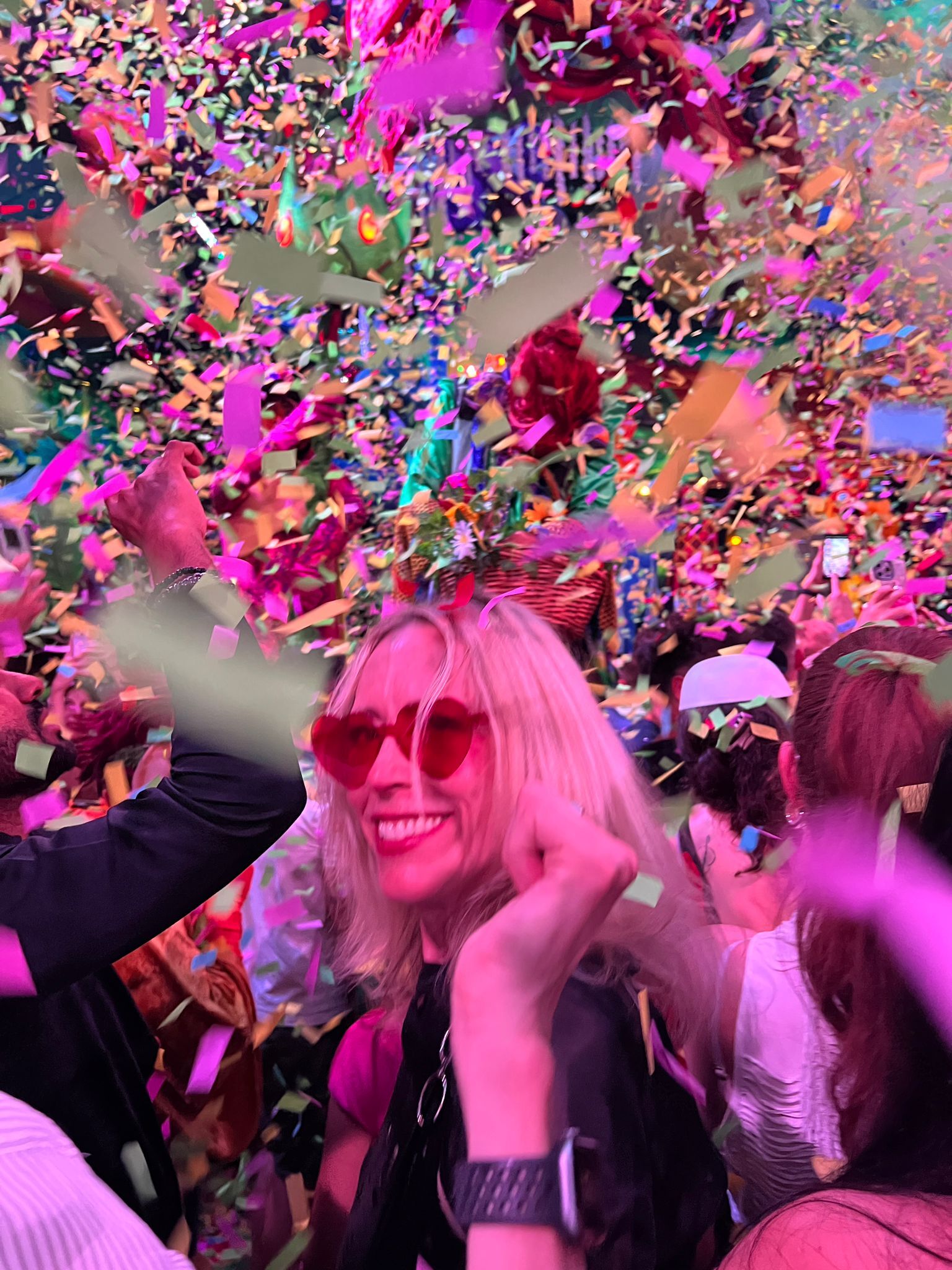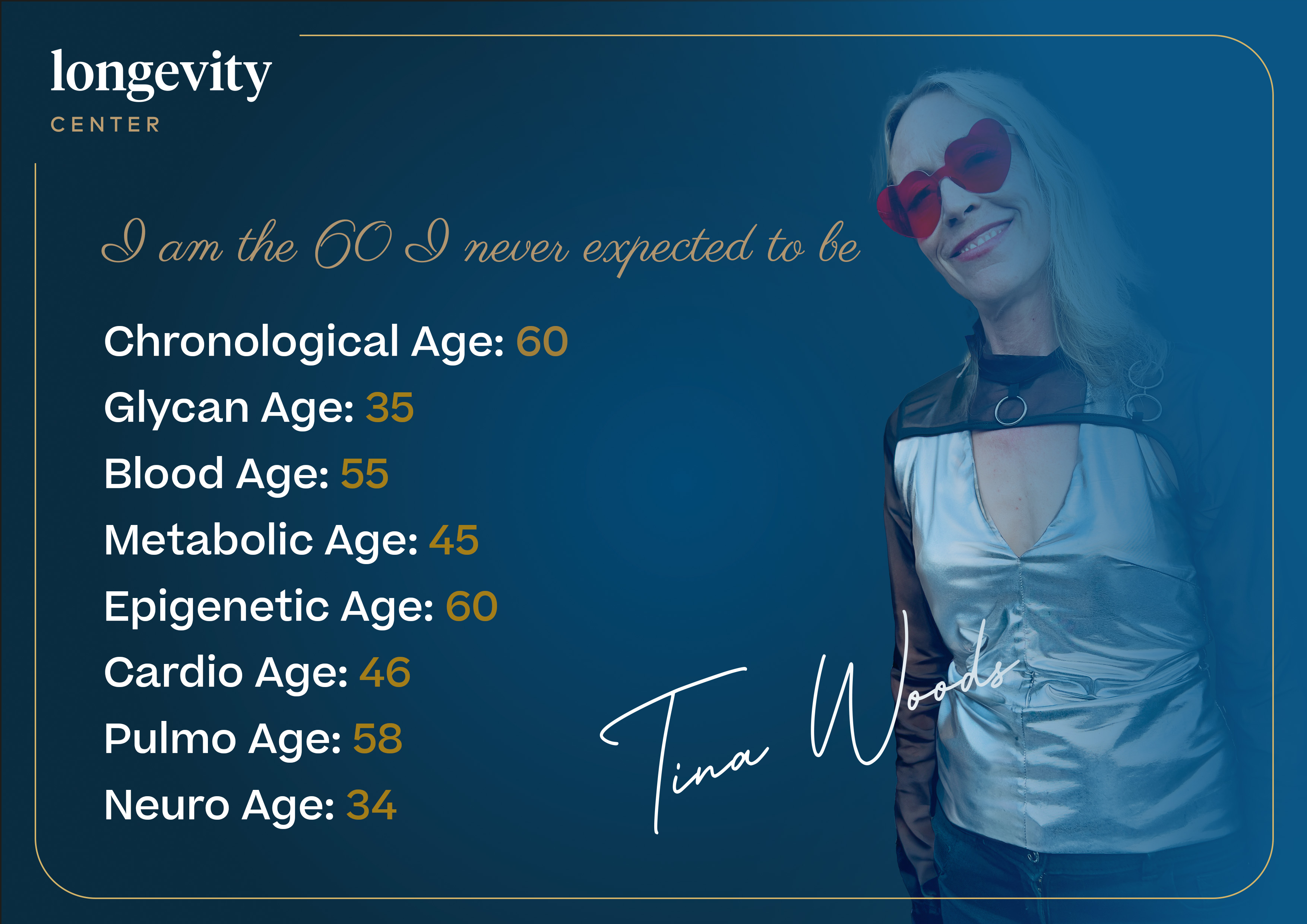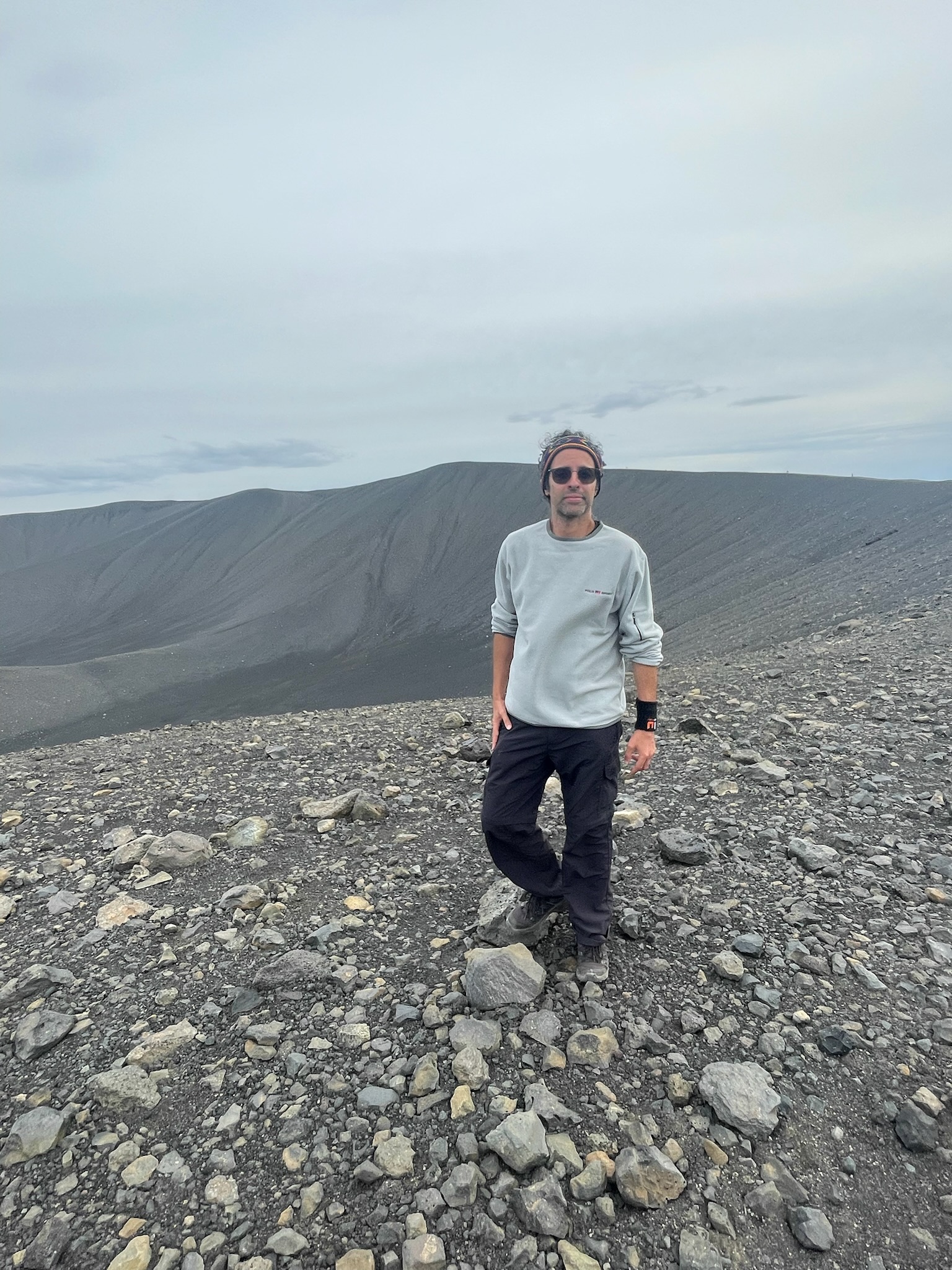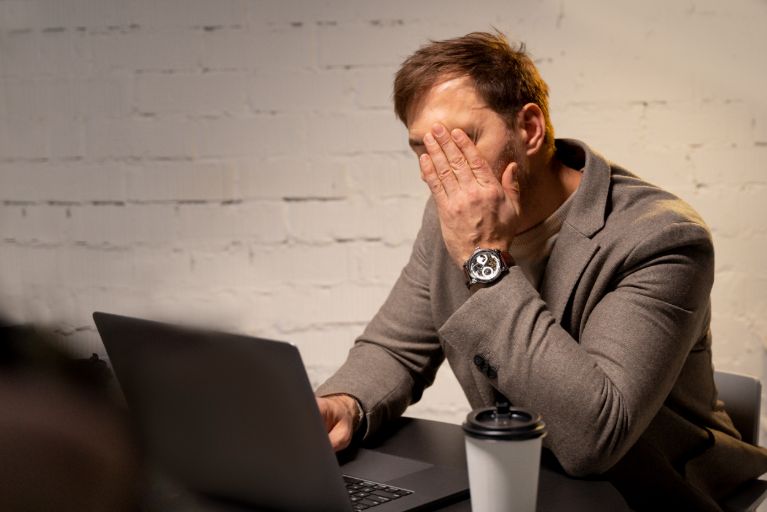The Longevity Whisperer - Tina Woods on Health Care, Blue Zones, DJing and Loving Life

Tina Woods is a visionary in longevity science, as well as a techno DJ who's found the fountain of youth and works tirelessly to help others achieve better health through her groundbreaking projects. Although it's hard to believe, this sentence doesn't even begin to describe her. Read our interview to find out more about this biohacking pioneer.

It was an absolute pleasure to interview the woman aiming to take longevity science and technology mainstream and shift our sick care system towards one based on prevention. Tina Woods shared all of her passions, projects and views on longevity as well as her tips on how she keeps her GlycanAge low.
Tina, it’s so nice to meet you. I want to start with an easy question - what sparked your interest in longevity?
Likewise, I’m very happy to be here.
You know, I've been working in this area for the past six years and I do a lot of work in policy and system change. Longevity has been part of that work and I’m trying to get people, governments, policymakers and business investors interested in preventative health.
You've done some research in the Blue Zones, specifically not just the Blue Zones that occurred naturally, but also the ones that were manufactured by humans. What can we learn from the Blue Zones that are being constructed? And what is something that our readers can do to better their longevity?
You're right, I have been aware of the Blue Zones for a while now. In fact, I wrote a book that was published a little over four years ago that referenced the Blue Zones, and what struck me was a lot of the experts I interviewed said they followed the basics to live longer, like :
- Healthy eating (eating as little processed food as possible and eating vegetables and fruits)
- Getting lots of exercise (in Blue Zones it isn't about going to the gym, it's about building it into your everyday life)
- Being outside (people in Blue Zones tend not to be in high urban areas, but on islands or in mountains)
- Nurturing family bonds (having social connections and feeling a sense of belonging in your community, as well as having a sense of purpose)
- Getting enough sleep (helps you stay healthy)
I visited Okinawa, for example. And one of the things that they do is eat until they're about 80% full. So it's about eating the right foods, lots of plant-based foods, a lot of fish, and not eating too much.
Also, being in an environment where age isn't considered a bad thing. In some parts of the world, there's a lot of ageism, but in many of the Blue Zones, elders are respected for their wisdom. It's not a bad thing to be older.
So all these sorts of things tie together - people tend to live longer in an area where they're accepted and where there's less stress.
Those are all the basic parameters of a Blue Zone. The work I am doing with the National Innovation Centre for Ageing and the City of Longevity initiative is recruiting 100 trailblazer Longevity Cities around the world to create ‘measurable’ Blue Zones where we can collect objective data and evidence to measure health outcomes. That’s the best way to measure and understand their impact, especially regarding policy and investment decisions.
Absolutely, and how does mental health impact our longevity?
This is something that's not understood well enough. There's a lot of research that shows that stress can affect your innate resilience to life's challenges; and this stress can be anything from physiological stresses like air pollution and unhealthy diets to psychological stresses caused by isolation or financial worries for example, that affect your overall mental health.
These stresses all age you but what is getting more attention now in scientific study is understanding why and how people can be more or less resilient to these stresses.
In my consultation with GlycanAge, a specialist said that when people have gone through a major stress event, like a divorce or work stress, this shows up in the results and impacts their biological age.
There's a paper I often refer to by Alex Zhavoronkov who did a study with, I think, 6,000 adults in China.
They used a subjective age clock, which tries to assess how psychological well-being affects your biological age. And they found out that if you sleep badly, have chronic stress, or if you're depressed, that does worsen your biological age.
Can you tell me what first attracted you to GlycanAge?
I'm curious about all the tools, technologies and methods used to assess longevity, including biological age. That's just part of what I do professionally.
I met Nikolina at a conference, and I was intrigued by her and GlycanAge. So I did the test just to try it out because I've done a few of these tests.
The first time I tested, I was 56 (chronologically) and my result was 45.
I remember saying to Nikolina that I just started taking HRT and she had mentioned to me that it might affect my results positively if I tested again in 6 months.
I waited 4 years and tested again on my 60th birthday and got an even better result - 35.
Now, I’ve been on oestrogen and progesterone for four years, and on testosterone for about a year and a half. When I spoke to your colleague about my test results, we discussed that getting ‘biologically younger’ was most likely down to HRT, my healthy lifestyle, positive mindset and good relationships.
Can you describe your lifestyle for us?
Of course. I’m very focused on intermittent fasting. I don't eat very much for four days a week, and I eat very healthily. I hardly eat any processed food, everything's cooked from scratch and I eat lots of plants.
I do take some supplements, but nothing crazy. I take vitamin D, B12, omega 3, calcium and some joint supplements (glucosamine complex and collagen complex).
I also exercise for at least an hour a day (usually 1.5 hours). I sometimes take a break, one day a week.
The other very important thing is - I really love my life.
I have a really good relationship with my husband, which has only gotten better, I've got great friends, I've got great relationships with my sons and I love my work. So I'm happy with my life and I’m convinced that also impacted the result.
The recent tests I have had, including GlycanAge and also the Humanity app show that I am reversing my biological age on the basis of my lifestyle (especially exercise). This is evidence that I’m growing younger. And this is further substantiated by an assessment recently carried out by a longevity clinic in Warsaw, called Longevity Centre Europe.
It showed that my cardio age is 37, and my metabolic age is 45. On the basis of the results from the cognitive tests they ran, they measured my neuro age as 34. My epigenetics results show that my cognitive biological age has improved too over the past 5 years.

The media at the moment is awash with stories on (mainly) men like Bryan Johnson and other tech-bro billionaire types who are using very expensive techniques and gadgets with questionable impact on their health and little return so far from the investment.
So I think it is important to tell a different side of the story, which isn’t getting as much media attention - the woman's perspective. While I have had the benefit of these diagnostic assessments (that do cost money), most of the interventions I use and behaviours I follow don’t cost me much or anything at all.
I’m of course very lucky to have a wonderful family and friends but am convinced having a passion and a sense of purpose also has an immense positive effect on your biological age.
Getting back to your diet, how long is your eating window?
So for four days a week, I try to eat very small amounts, basically intermittent fasting and caloric restriction together. I have tea and coffee with a bit of milk, and I might have miso soup during the day, but I try to have only one main meal a day which is in the evening.
Now I've started introducing a protein shake at 5:00 in the afternoon because I'm very conscious about having enough protein to avoid losing muscle mass as I get older.
What does that one meal look like?
It’s usually a salad full of green leafy vegetables, lean meats, seeds and nuts. I like to listen to my body, so I'm not so strict with the fast. I'll occasionally have a handful of seeds or something like that. But basically I eat a low amount of calories during those four days.
I’m trying to get 30 plants a week - a lot of green leafy vegetables, like kale, spinach, Brussels sprouts and broccoli.
I don't eat a lot of red meat, usually, it’s chicken, pork and fish.
I eat very little carbohydrates and if I do, it's only on the three days of the week that I don't fast. Usually, I'll have wholegrain bread, sometimes a bagel and things like that which aren't as good, but I just feel like it!
What does your workout routine look like?
It varies a little bit, but I do Zumba 2 times a week. I love dancing and actually go dancing socially as well, probably 3 or 4 times a month, for about 6 hours in a session.
On my non-Zumba days, I'll do 20 minutes of high-intensity cycling on a stationary bike, then 45 minutes on a rowing machine, and finish with 20 minutes of strength training and functional muscle training. I do this in my makeshift gym in my cellar (a good idea that came out of the pandemic!)!
Sometimes I'll mix it up a bit, like I'll do a half hour of Pilates and then maybe 45 minutes to an hour on the rowing machine.
I also love walking, I go on hikes in the mountains. So I'm quite active. But then I do a lot of sitting during the day because of my work so it’s a good counterbalance.
You mentioned strength training, and I know that menopausal women often get this advice not to do high-intensity training because of the loss of bone density. What is your opinion on it?
Well, I think it's important to know whether you are losing bone density. If you're at risk of osteoporosis or osteopenia, then of course you have to take measures.
But there are ways that you can address that. I'm taking calcium because I have a bit of loss of bone density in my pelvis area that was uncovered during my assessment at Longevity Centre Europe.
It's nothing to worry about yet and it wouldn't affect my exercise at all. I would say it's even more important to have weight and some resistance training because that will then make you stronger. It develops the muscles around your bones, which is important.
You need to be armed with knowledge and personally, if you're making a decision to do less exercise, I think that's very unwise.
If you have the risk of osteoporosis in your family, for example, or if you don't eat well, then I think you should be aware that you may need to modify your exercise regime, but you should get proper medical advice.
It’s always easier to do things that you truly enjoy, as opposed to forcing yourself to exercise. Can you introduce our audience to Collider Health? What is your main mission there?
I work on changing the system through mission projects, and I run another organization called Business for Health. So I run two organizations.
Collider Health is focused on special projects and missions. For example, one of the big missions that I'm working on with the National Innovation Center for Ageing in the UK is around longevity cities - trying to understand how you can take a community or a city and deliver better health through system engagement.
But I'm also very interested in the data. I'm involved in an international biomarker consensus project. We’re looking to collect, measure and assess the best biomarkers to extend human healthspan, resilience and flourishing.
We know healthspan is the big buzzword. But I think there's a whole space around the psychology and behavioural side of things, which is a space that we need to understand better to be able to nudge people towards healthier behaviours.
If you have the resources to pay for all these tests and to go to those longevity clinics, you're probably more motivated.
But my worry is how do you make sure that everyone can benefit from science and technology? How do we design a new city - or how do we adapt a city - so that we can encourage people to stay healthier and encourage really basic things, like moving more?
We need better housing, more trees, more playgrounds, less junk food, etc.
That's a big part of my work with the UK government, trying to make it more difficult for companies to keep plying us with all this ultra-high processed food. That's very difficult because the food lobby and the sheer marketing budgets of these food companies are very powerful.
But addressing this is the only way that we're going to reduce diabetes and obesity, which of course is one of the biggest drivers of ill health, and leads to all the chronic diseases linked with ageing.
I love how holistically you look at it. And yeah, some people cannot afford to take expensive supplements or have a gym membership.
That's the bigger question to answer. And that will have much more impact on the whole world.
I want us to move from sick care, which we have at the moment in most of the Western world, to a prevention-based economy.
That is the heart of the work that I do and is my core passion. I’m also passionate about reducing health and wellbeing inequalities because they are linked to wider system inequalities.
If you're poor, and can only afford junk food, and live in an area where you have no playgrounds and have less access to high-quality work, these all affect your health.
And no anti-ageing pill will solve those bigger problems!



